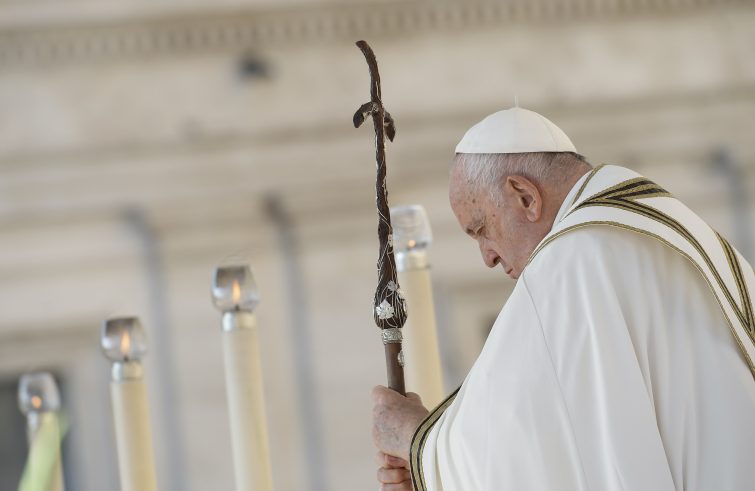
At the end of today’s general audience in Saint Peter’s Square, dedicated to Saint Josephine Bakhita, Pope Francis sent out an appeal for peace in the Middle East: “I continue to follow what is happening in Israel and Palestine with tears and apprehension”, he said in his greetings to the Italian-speaking faithful: “Many people killed, others injured. I pray for those families who have seen a feast day transformed into a day of mourning, and I ask that the hostages be released immediately.”
“It is the right of those who are attacked to defend themselves – Francis argued – but I am very concerned about the total siege under which the Palestinians are living in Gaza, where there have also been many innocent victims.” “Terrorism and extremism do not help reach a solution to the conflict between Israelis and Palestinians, but fuel hatred, violence, revenge, and only cause each to other suffer. The Middle East does not need war, but peace, a peace built on dialogue and the courage of fraternity.”
The Pope addressed “a special thought to the population of Afghanistan, suffering following the devastating earthquake that struck, claiming thousands of victims, including many women and children, and displaced persons.” He then called on “all people of good will to help this people, already sorely tried, contributing in a spirit of fraternity to alleviating the sufferings of the people and supporting the necessary reconstruction.” In the opening of his catechesis, Francis launched an appeal for Sudan, “torn by a terrible armed conflict, of which little is spoken today”: “let us pray for the Sudanese people, so they might live in peace!” The reference is to Sudanese Saint Josephine Bakhita, at the heart of the audience, whose fame – Francis remarked – has exceeded every boundary and reached all those to whom identity and dignity is denied.”
“When we enter the logic of fighting, of division between us, of bad feelings, one against the other, we lose our humanity. And very often we think we are in need of humanity, to be more humane!”, the Pope’s cry of alarm, departing from the written text: “To humanize, to humanize ourselves and to humanize others.”
“To pity means both to suffer with the victims of the great inhumanity in the world, and also to pity those who commit errors and injustices, not justifying, but humanizing. This is the caress she teaches us: to humanize”, the Pope said referring to Saint Bakhita’s “secret”, who “was always capable of forgiving; indeed, her life is an existential parable of forgiveness”, he continued off-text: “Do not forget this: forgiveness, which is God’s caress to all of us. Forgiveness liberated her. Forgiveness first received through God’s merciful love, and then the forgiveness given that made her a free, joyful woman, capable of loving.” “Bakhita was able to experience service not as slavery, but as an expression of the free gift of self”, Francis explained: “And this is very important: made a servant involuntarily – she was sold as a slave – she then freely chose to become a servant, to bear on her shoulders the burdens of others.” “Saint Josephine Bakhita, by her example, shows us the way to finally be free from our slavery and fears”, the Pope said. “She helps us to unmask our hypocrisies and selfishness, to overcome resentments and conflicts. And she encourages us, always.”
“Forgiveness takes away nothing from you but adds dignity to the person,
it makes us lift our gaze from ourselves towards others, to see them as fragile as we are, yet always brothers and sisters in the Lord”, Francis concluded: “forgiveness is the wellspring of a zeal that becomes mercy and calls us to a humble and joyful holiness, like that of Saint Bakhita.”











